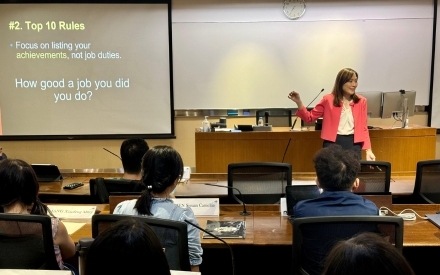Faculty Profile
MBA in Finance (Columbia University)
Prof. Warren Kwan holds an MBA in Finance from Columbia University and a Bachelor of Applied Science in Engineering Science from the University of Toronto, specialising in Computer Aided Manufacturing. With over two decades of experience in the financial sector, Warren has specialised in equity, fixed-income, and derivatives trading. His roles have included Deputy Head of Capital Markets at The Bank of Nova Scotia and Global Head of Trading in Equity Derivatives and Convertible Bonds at Standard Chartered Bank. Prof. Warren Kwan's expertise extends to multi-asset financial products, including exotic options, structured products and variance swaps. His vision is to integrate Machine Learning and Generative AI to innovate investment processes to revolutionise fintech, financial analysis and asset management.
How do you combine theoretical concepts with the latest industry practices and business trends?
I bring theory to life by grounding it in current market realities. My lectures are built around real trading use cases — from pricing convertible bonds to modeling credit derivatives — and I pair that with the latest AI tools, like ChatGPT and multi-agent systems. I also emphasise live case studies, drawing from my experience in developing AI-powered investment systems, so students can see how emerging technologies intersect with fundamental financial theory.
What business topics should CityUHK MBA students be the most familiar with when they graduate from our programme?
Students should understand how AI and automation are transforming every layer of business, especially in finance. Familiarity with digital transformation, data-driven decision-making, and algorithmic thinking will be essential. They should also grasp ESG integration, risk management, and how geopolitical shifts influence global markets and capital flows.
One career advice to our CityUHK MBA students?
In the Gen AI era, “small steps are big wins.” Many people get caught up chasing breakthrough results overnight — only to feel overwhelmed or disillusioned when reality doesn’t meet expectations. My advice: start small, stay consistent, and engage early. Every small experiment, every prompt you write, every use-case you test is a step forward. The AI transformation isn’t about perfection — it’s about participation.
Any other information that you feel comfortable sharing with our prospective students?
The future of finance is not just about faster execution or better models — it’s about rethinking how decisions are made. Generative AI is no longer a trend; it’s a shift in how we build, think, and invest. At CityUHK, we’re giving students a front-row seat to that transformation — and I’m excited to be part of that journey with you.










